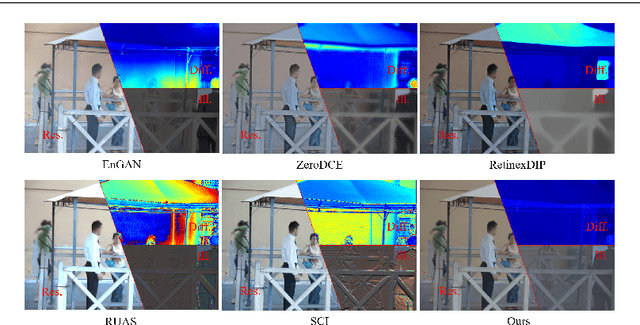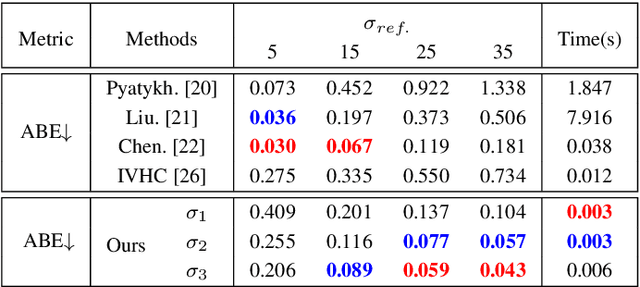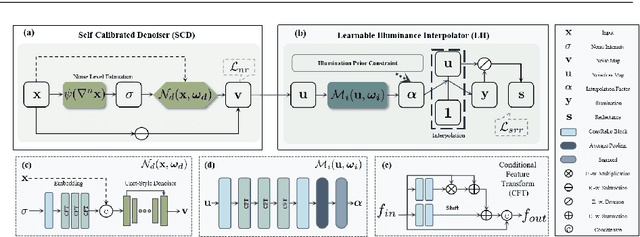Ziyu Yue
SAR2Struct: Extracting 3D Semantic Structural Representation of Aircraft Targets from Single-View SAR Image
Jun 07, 2025



Abstract:To translate synthetic aperture radar (SAR) image into interpretable forms for human understanding is the ultimate goal of SAR advanced information retrieval. Existing methods mainly focus on 3D surface reconstruction or local geometric feature extraction of targets, neglecting the role of structural modeling in capturing semantic information. This paper proposes a novel task: SAR target structure recovery, which aims to infer the components of a target and the structural relationships between its components, specifically symmetry and adjacency, from a single-view SAR image. Through learning the structural consistency and geometric diversity across the same type of targets as observed in different SAR images, it aims to derive the semantic representation of target directly from its 2D SAR image. To solve this challenging task, a two-step algorithmic framework based on structural descriptors is developed. Specifically, in the training phase, it first detects 2D keypoints from real SAR images, and then learns the mapping from these keypoints to 3D hierarchical structures using simulated data. During the testing phase, these two steps are integrated to infer the 3D structure from real SAR images. Experimental results validated the effectiveness of each step and demonstrated, for the first time, that 3D semantic structural representation of aircraft targets can be directly derived from a single-view SAR image.
LoLiSRFlow: Joint Single Image Low-light Enhancement and Super-resolution via Cross-scale Transformer-based Conditional Flow
Feb 29, 2024



Abstract:The visibility of real-world images is often limited by both low-light and low-resolution, however, these issues are only addressed in the literature through Low-Light Enhancement (LLE) and Super- Resolution (SR) methods. Admittedly, a simple cascade of these approaches cannot work harmoniously to cope well with the highly ill-posed problem for simultaneously enhancing visibility and resolution. In this paper, we propose a normalizing flow network, dubbed LoLiSRFLow, specifically designed to consider the degradation mechanism inherent in joint LLE and SR. To break the bonds of the one-to-many mapping for low-light low-resolution images to normal-light high-resolution images, LoLiSRFLow directly learns the conditional probability distribution over a variety of feasible solutions for high-resolution well-exposed images. Specifically, a multi-resolution parallel transformer acts as a conditional encoder that extracts the Retinex-induced resolution-and-illumination invariant map as the previous one. And the invertible network maps the distribution of usually exposed high-resolution images to a latent distribution. The backward inference is equivalent to introducing an additional constrained loss for the normal training route, thus enabling the manifold of the natural exposure of the high-resolution image to be immaculately depicted. We also propose a synthetic dataset modeling the realistic low-light low-resolution degradation, named DFSR-LLE, containing 7100 low-resolution dark-light/high-resolution normal sharp pairs. Quantitative and qualitative experimental results demonstrate the effectiveness of our method on both the proposed synthetic and real datasets.
Diving into Darkness: A Dual-Modulated Framework for High-Fidelity Super-Resolution in Ultra-Dark Environments
Sep 11, 2023



Abstract:Super-resolution tasks oriented to images captured in ultra-dark environments is a practical yet challenging problem that has received little attention. Due to uneven illumination and low signal-to-noise ratio in dark environments, a multitude of problems such as lack of detail and color distortion may be magnified in the super-resolution process compared to normal-lighting environments. Consequently, conventional low-light enhancement or super-resolution methods, whether applied individually or in a cascaded manner for such problem, often encounter limitations in recovering luminance, color fidelity, and intricate details. To conquer these issues, this paper proposes a specialized dual-modulated learning framework that, for the first time, attempts to deeply dissect the nature of the low-light super-resolution task. Leveraging natural image color characteristics, we introduce a self-regularized luminance constraint as a prior for addressing uneven lighting. Expanding on this, we develop Illuminance-Semantic Dual Modulation (ISDM) components to enhance feature-level preservation of illumination and color details. Besides, instead of deploying naive up-sampling strategies, we design the Resolution-Sensitive Merging Up-sampler (RSMU) module that brings together different sampling modalities as substrates, effectively mitigating the presence of artifacts and halos. Comprehensive experiments showcases the applicability and generalizability of our approach to diverse and challenging ultra-low-light conditions, outperforming state-of-the-art methods with a notable improvement (i.e., $\uparrow$5\% in PSNR, and $\uparrow$43\% in LPIPS). Especially noteworthy is the 19-fold increase in the RMSE score, underscoring our method's exceptional generalization across different darkness levels. The code will be available online upon publication of the paper.
NFI$_2$: Learning Noise-Free Illuminance-Interpolator for Unsupervised Low-Light Image Enhancement
May 17, 2023



Abstract:Low-light situations severely restrict the pursuit of aesthetic quality in consumer photography. Although many efforts are devoted to designing heuristics, it is generally mired in a shallow spiral of tedium, such as piling up complex network architectures and empirical strategies. How to delve into the essential physical principles of illumination compensation has been neglected. Following the way of simplifying the complexity, this paper innovatively proposes a simple and efficient Noise-Free Illumination Interpolator (NFI$_2$). According to the constraint principle of illuminance and reflectance within a limited dynamic range, as a prior knowledge in the recovery process, we construct a learnable illuminance interpolator and thereby compensating for non-uniform lighting. With the intention of adapting denoising without annotated data, we design a self-calibrated denoiser with the intrinsic image properties to acquire noise-free low-light images. Starting from the properties of natural image manifolds, a self-regularized recovery loss is introduced as a way to encourage more natural and realistic reflectance map. The model architecture and training losses, guided by prior knowledge, complement and benefit each other, forming a powerful unsupervised leaning framework. Comprehensive experiments demonstrate that the proposed algorithm produces competitive qualitative and quantitative results while maintaining favorable generalization capability in unknown real-world scenarios.
 Add to Chrome
Add to Chrome Add to Firefox
Add to Firefox Add to Edge
Add to Edge